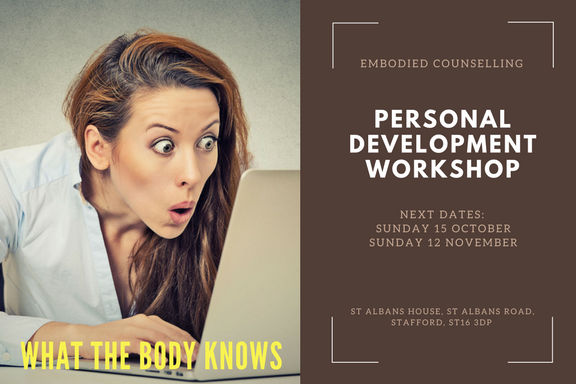How many of us at this point during the pandemic are not feeling right? If you’re not feeling like yourself, it can be a strange feeling. But whilst each of us will be experiencing things differently, the common thread may be that we are acting in ways that are not typical.
How we might be feeling
We usually think that our sense of self is a constant unified thing. That there should be harmony and unification. But the reality for each of us, to some extent or other, is that of conflict. Who has not had the experience of being in conflict? Perhaps about a decision we have to make, perhaps about a relationship? It’s like a part of us wants something and another part wants the opposite.
Parts in conflict
This sense of parts of ourself in conflict is playing out in the world at large. Look at the extremes operating publicly in a liberal country like the US. Whilst Joe Biden calls for calm and civility, that is a big ask for human beings. We are ruled by difference, by polarity. And this plays out in those inner conflicts where we have polarised parts driven to behave in opposite extremes. Part of us wants to ask our friend out for a walk, but another part is being incredibly stubborn about something. We might have all the best intentions to eat better, or lose weight, yet part of us just keeps heading for the couch or reaching for the chocolate.
When opposites don’t attract
It’s a well-known aphorism isn’t it: opposites attract. Well, they do until they don’t and mostly they don’t. As human beings we really have a problem with difference. And when that difference is in us we can protect ourselves by becoming blind to it. Of course, our inner critic or internalised bad object may protest quite loudly, but we do our best to silence or ignore it.
Reasons for not feeling like yourself
This lack of inner alignment or balance can manifest in well-observed ways in all of us. We may be intellectual not sporty – or vice versa. We may be good at doing, keeping busy, but crumble when we need to sit still. We may be very rational and lack intuition or creativity, or perhaps we are arty and creative and people see us as a little flaky. It may be that we are seen as passive and easy going or we may come across as bossy or domineering. As a man we may be overly masculine and lack a more feminine side and a woman may have overly developed her femininity and deny herself the power of her own masculine side. And then there is the tendency to activity or receptivity. Perhaps we are great at putting others first or helping them, but poor at asking for help ourselves?
Polarities within families
We can categorise the polarities in our being into four broad types. Firstly, we are born out of difference. We are the product of a mother and a father. Two different people, two different genders. And then there is the whole realm of difference in the families of our mother and of our father. If both of our parents are balanced and well-integrated as people, in a loving family environment we have a chance, as children, that all parts our self will be seen, accepted and validated.
If you are not feeling like yourself, perhaps you have lost your temper or have been overly critical of your kids. ‘Oh god, I am becoming just like my mother/father’ is not uncommonly heard amongst some of us! Yet, if our parents stay together (or split amicably) and love each other, we can more easily integrate and balance those parts of our parents and our families with which we identify. This means that if we behave in ways that we are not so proud of, we are kinder to ourselves.
Family divides
But if our parents hate each other, or parts of each other’s families, we will be in conflict with those aspects of any of them which we recognise in ourselves. This may mean that we feel shame or disgust at our self, or to protect our self from shame, we may project onto others and see those qualities in people around us.
Either way we become split. This can result in a self-propagating cycle of shame where we either withdraw from relationships and have increasing feelings of unworthiness. Or we may become angry or hateful of others.
How to begin to feel better
Whilst our culture pretends that difference is not an issue, it also likes to have quick fixes and bulleted lists for self-help! Making deep changes within our self is not easy and neither are self-help suggestions, because we are all different. No two of us will be doing a ‘problem’ in the same way, nor would we have constructed or developed the problem for the same reason.
But here are some considerations for when you are not feeling like yourself.
-
Awareness matters
The first step is perhaps to begin to develop awareness of these polarities that exist within us, but with a healthy dose of self-compassion. True change only comes from a place of acceptance. Once we accept something within us, that we may well not like, we have a chance of changing it.
-
Practise self-compassion when you’re not feeling like yourself

Once we become more aware of conflicting parts within our self, it is important to learn to be kind to our self. Otherwise, greater awareness can simply bring more self-loathing or criticism. For instance, remind yourself that just because your behaviour sometimes reminds you of your mother or father, it does not mean that you are globally like them. You are more than your behaviour. Learn to see the positives in the aspect of yourself that you don’t like. For instance, a tendency to be critical of self or others often has a positive intention of wanting them to be better.
This self-hypnosis on ‘Loving Yourself’ might be nice to practise.
-
Talk to someone who loves you
The best antidote for shame, an emotion often at the heart of difference, is to be seen by someone we love. Truly seen. If you can be brave enough to talk about aspects of your behaviour or thoughts that you don’t like, with someone you know believes in you, it can be transformative. To be seen in our shame or disgust, and accepted, helps to discharge it. Loving others may also see things differently – we are usually our own worst judge.
-
Work on your HRV and coherence
Heart rate variability (HRV) is an important measure of coherence. If we can train our system into coherence we are integrating neurological imbalances such as sympathetic and parasympathetic nervous system and increasing vagal tone. The neurological and psychological state that this achieves means that we are more resilient to stress and more able to make the changes we want in our life.
-
Integrate your polarities
I believe we are driven to achieve balance and integrate all parts of our self so that we can become whole. All of us, regardless of the difficulties and traumas we have faced in our life, are able to become who we truly are. It is through achieving alignment on all levels of our being that we can move forward in life and be more able to face life’s inevitable challenges. A good psychotherapist can help you on this journey.
More reading when you are not feeling like yourself:
More articles on low self-esteem

